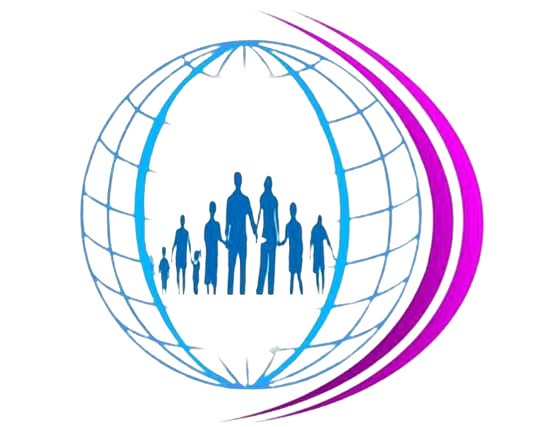Founded as a grassroots civil society organization in 2012, Sober-life Mentorship Society works in the areas of behavioural change, psycho-social and economic change in the community. Officially registered in Kenya as a volunteer organization targeting youths involved in the drug abuse habit, Sober-life has impacted thousands of young people in primary, secondary and university levels, to take charge of their lives, make proper decisions of life and engage in positive investments which will be of benefit to the current and future generations. This includes alternative income generating activities to reduce reliance on the limited formal employment opportunities of which many young people cannot access, hence the cycle of poverty which in turn triggers and accelerates drug abuse and related habits such as crime.
Rehabilitation
Rehabilitation methods includes providing parental care. Health educations, vocational training in conducive atmosphere.
Support Services to Slums
This program is designed to suit the children in the age group of 6 -18 yrs in slums. The aim of the program is to prevent the children in the slums from becoming street children by providing formal & remedial education.
Vision: A vibrant generation of leaders who are conscious of their own and community’s needs and responsibly striving to attain the best outcomes.
Mission: To mentor the community in making decisions and implementing actions that will chart a good path for their lives and result in a better destiny for themselves, their families and society.
Milestones of Impacts
Sober-life represented the youth of Kenya in the formulation of the Youth Enterprise Bill which was signed into law by former president Mwai Kibaki. This was meant to support the out-of-school youths who are engaged in small enterprise activities such as waste management and agribusiness, through offering long term, soft loans and grants. The organization is also an active, recognized partner of the National Campaign against Drug Abuse (NACADA) which is the government body coordinating efforts to mitigate drug abuse in Kenya.
Sober-life was involved in the United Nations General Assembly Special Session (UNGASS) on drugs in 2016, where we advocated for social and economic empowerment of the community through supporting grassroots organizations as a credible way of combating drugs and crime. Since then, Sober-life has addressed several United Nations forums, becoming a member of the World Federation against Drugs (WFAD) as well as the Vienna Non-Governmental Organizations Committee where we have the voting rights on related policies.
Paul, the Sober-life founder to be chosen as the Liaison Representative of the East and Central Africa Network on Substance use and Crime Prevention; a body of Civil Societies working for the common cause. We have been involved in worldwide strategic policy advocacy with participation in diverse forums in Uganda, Tanzania, Ethiopia, Sweden, Austria, India, UAE among others.
Street children
The organization is a Kenyan registered Community Based Organization Community and works to sensitize and strengthen families on issues affecting children. The organization works to help vulnerable children get reintegrated to communities and families that have been strengthened enough to embrace the children and that the efforts are sustainable. We have experienced many cases of children being reintegrated but running back to the streets within a short time and this is a great concern in our country. This has been a vicious cycle and very disheartening not only to stakeholders who are the children, families, communities, individuals, community leaders, other agencies and the government efforts are not enough.
Categories of children needing care and protection include Orphans and Vulnerable children, Children working and living on the streets, Abandoned babies, Children with special needs, children in dysfunctional families, children of prisoners, children living with hostile stepparents, children in poverty-stricken families, etc.
We envision Christian communities that are able to help every child reach their full God-given potential with the goal of raising future Godly leaders, missionaries and highly motivated professionals to contribute to the development of the country. To be able to achieve our goal, involvement and empowerment of families is our top priority. We do this through Partnerships, Collaboration and Networking with like-minded agencies.
Areas of Community strengthening include Training on Child Care and Protection, Mentorship, Community Mobilizing and Organizing, Community Sensitization, Linking the vulnerable groups with support, Promoting Networking, collaboration and Partnerships, Trauma Healing, Member-Care, Church relations, Mobilization and equipping, Discipleship, equipping the church with social and other skills.
A census of street families conducted by the GOK in 2018 found out that there were 46,639 street persons spread across the 47 Counties. Most of the street persons were males comprising of 72.4 per cent. Majority (21,550 persons) were youth aged 19-34 years followed by children aged below 19 (15,752 persons). The numbers of street families keep growing due to population growth, urbanization, and migration, particularly in the developing world such as Kenya. Children are pushed into living and working on the street by many factors, such as poverty, death of parents, separation/divorce of parents, abandonment, parents living on the streets, mistreatment by parents or relatives, tribal displacement, inadequate food at home, influence by friends, insecurity, getting lost during traveling, being born on the streets, lack of school fees, fear of being reprimanded, corporal punishment, domestic violence, or in search of employment or income among others. Once on the streets many other threats await these children.
